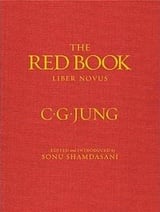The brilliant use of alchemy as a symbolic language and process for psychological and spiritual development is arguably one of C. G. Jung’s greatest contributions to the field of depth psychology. While alchemy may appear to be a mystical—and mysterious—domain, Jung developed a powerful and inspired method for accessing it by entering into dialogue with the rich manifestations of the unconscious and applying it to our daily lives for transformation and growth.
“True knowledge of oneself is the knowledge of the objective psyche as it manifests in dreams and in the statements of the unconscious,” wrote Marie-Louise von Franz, one of Jung’s closest colleagues. Finding myself intrigued by the idea of tapping into alchemical symbolism, and wanting to know more, I realized there was no better person to share some insights than Tom Elsner, a Jungian analyst and professor of Alchemy at Pacifica Graduate Institute, where Tom is teaching a 3-day workshop on the topic of Alchemical Active Imagination at Pacifica starting March 4.
 Tom immediately offered some history on the process of active imagination, which Jung developed to work with his own difficult experiences. Starting around 1916, after Jung notoriously broke with his mentor, Sigmund Freud, Jung went through an intense psychological process that included depression, accompanied by many deep dreams and visions. Over a period of 16 years, Jung gave voice to his inner dialogues through writing and painting, a process that ultimately resulted in The Red Book.
Tom immediately offered some history on the process of active imagination, which Jung developed to work with his own difficult experiences. Starting around 1916, after Jung notoriously broke with his mentor, Sigmund Freud, Jung went through an intense psychological process that included depression, accompanied by many deep dreams and visions. Over a period of 16 years, Jung gave voice to his inner dialogues through writing and painting, a process that ultimately resulted in The Red Book.
For Jung, active imagination was the process of making one’s subjective psyche objective—that is, making the unconscious overt and tangible in terms of images, voices, and inner experiences—so that it can manifest in ways we can more easily understand. By entering into dialogue with those images and voices, Jung found himself actively engaged with “emotional drives and dynamics that would otherwise have overwhelmed him,” Tom Elsner points out. It was an...(Click here to read the full post and access the interview via Pacifica Post)